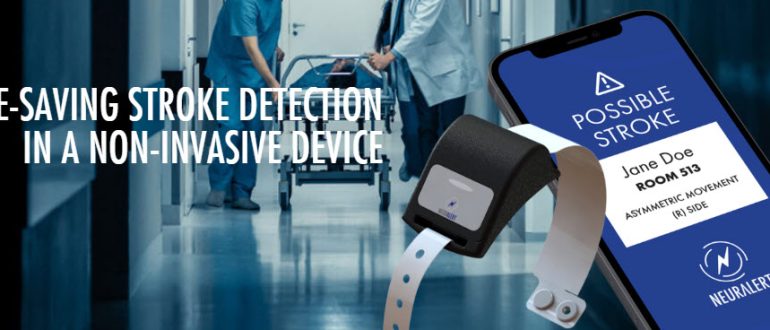In-hospital strokes represent a critical and often-overlooked challenge in patient safety, with delays in detection leading to devastating outcomes. The old adage ‘time is brain’ is never more relevant than when a patient, already under medical care, suffers a new neurological event that can be easily missed amidst the complexities of a hospital environment.
This is where innovative technology like the Neuralert wristband offers a compelling and potentially game-changing solution. Recently developed at the University of Pennsylvania Health System, this wearable device continuously monitors for subtle, asymmetric arm movements (a key indicator of stroke) and automatically alerts medical staff within minutes. Unlike manual checks, which can be infrequent and prone to human error, this 24/7 automated surveillance dramatically cuts the time to diagnosis, leading to faster treatment initiation, improved patient outcomes, and reduced healthcare costs.
While the potential of Neuralert is clear, the NHS hasn’t adopted such pioneering technology. The NHS is already integrating AI for stroke detection, primarily through AI-powered software that analyses brain scans to speed up treatment decisions. These systems have, so far, proven effective in accelerating the stroke pathway from scan to treatment, but they are most impactful after a stroke has been clinically suspected and a scan requested.
Neuralert, however, addresses the crucial step before this, offering a proactive, continuous monitoring solution to bridge the gap in surveillance for high-risk, non-ambulatory patients who are difficult to monitor manually.
Despite the clear clinical and economic rationale, Neuralert hasn’t been formally planned for incorporation into NHS stroke wards, probably because the NHS adoption pathway for new medical technology is robust but slow, requiring extensive trials, regulatory approvals, and evidence of cost-effectiveness.
Therefore, while Neuralert’s utility is undeniable, its journey from a breakthrough concept to a standard feature of UK NHS stroke care will depend on successful clinical trials within the NHS, robust cost-effectiveness data, and a clear pathway for national implementation.



